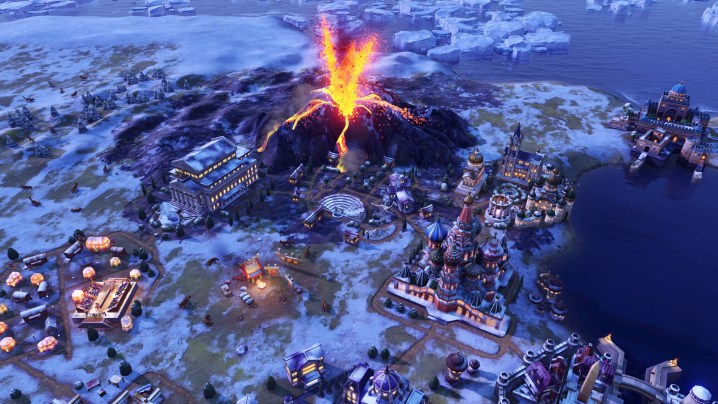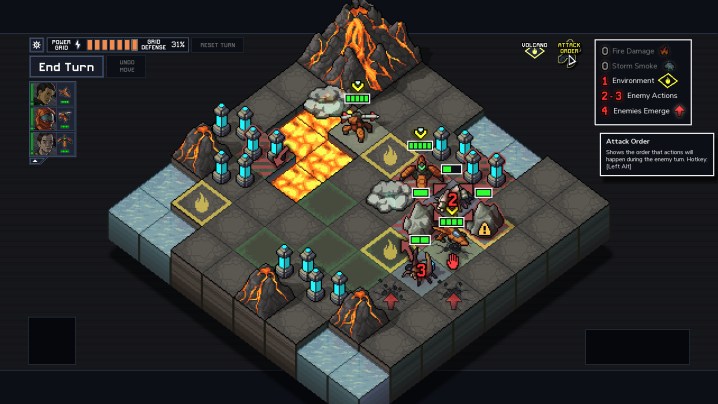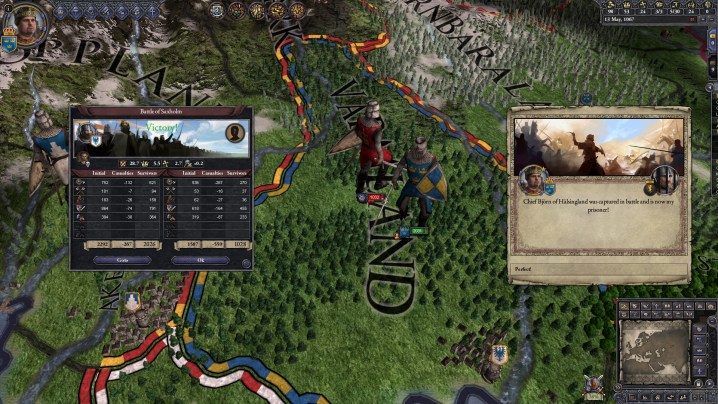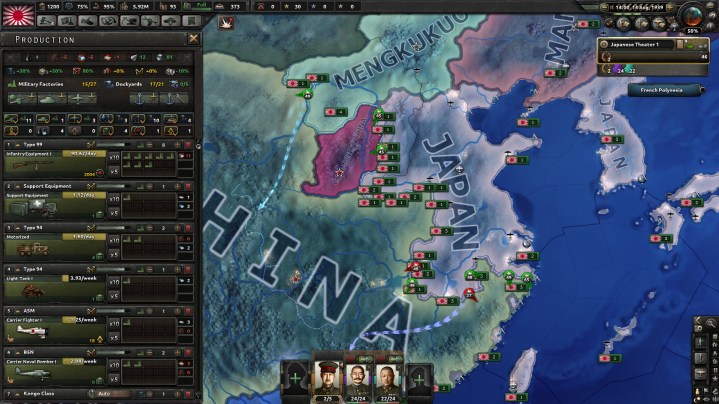The strategy genre is one of the largest and most diverse in video games, especially on PC. From 4X Middle Age epics like Crusader Kings III to small-scale tactics games like Into the Breach, there’s something for everyone, no matter if you have 10 minutes or 10 hours. Our list of the 15 best strategy games has it all, from the best real-time strategy games to the best turn-based ones and everything in between.
Although most strategy games are only available on PC, there are some on consoles, too. We mixed in a few options, including Wargroove and Frostpunk, that play particularly well with a controller over a keyboard and mouse.
Further reading
- The best free strategy games for PC
- The best indie games for 2020
- Master Civilization VI with these starting tips for new players and veterans
XCOM 2

XCOM 2 is a game about tough decisions and tactics. Your alien opponents have already overwhelmed Earth — the game’s predecessor, Enemy Unknown, shows that. Now, restricted to the Avenger, a massive research and military vessel floating in space, your job as commander is to plan your counterattack.
The tough decisions start on the Avenger, from taking days of operation off to scan new areas — where the threat of alien interruption is present — to choosing which soldiers need time to rest. On the battlefield is where you’ll feel them most, though. XCOM’s signature permadeath system is present. Maybe you recruit newbies to take the brunt of the alien assault, or maybe you give them time to live and place your best soldiers on the frontlines, running the risk of losing them forever.
These decisions determine the course of your XCOM 2 campaign, but the moment-to-moment gameplay is just as interesting. Combat plays out like Chess, with a small army of unique units set to a grid. With the threat of permadeath looming, the stakes are high in XCOM 2. Thankfully, a forgiving saving system allows anyone to get in on the fun without the consequences.
Read our XCOM 2 review
Civilization VI

Civilization VI defined the 4X strategy formula that games like Endless Legend and Hearts of Iron IV use to this day. If there’s a unique mechanic or quality-of-life improvement in one 4X game, it was probably in Civ first. That’s because, despite the franchise’s decades-long history, each game has pushed to be not only deeper, but also more accessible.
That’s what makes Civilization VI so easy to recommend. You don’t need a primer to get started. Civ VI walks you through everything from investing in your city to expanding to new territory, all without feeling overwhelming. Despite that, there’s plenty of depth, especially if you learn about all of the world leaders and what each of them do. Civilization set the standard for “one more turn,” and even after nearly 30 years, the franchise is still going strong.
Read our Civilization VI review
Wargroove

Wargroove brings back the simple, strategic gameplay of the Advance Wars series that fans have been waiting on for over 12 years. It’s a straight-up tactics game, nothing more, and that’s why we love it. Each level, you’ll take one of 15 unique commanders into battle, along with a small group of units. From there, it’s a matter of capturing outposts, defeating enemy troops, and moving the frontline toward the opponent’s base. Whichever team loses a commander or their base first loses.
Of course, there are placement bonuses, and each unit specializes in a different angle of attack. The single-player campaign is solid, with just enough story to keep you going. The multiplayer will keep you coming back for more, though. In addition to cross-platform support across Switch, PC, PS4, and Xbox One, Wargroove includes a highly detailed level editor. You can even string together your levels into a campaign, fit with your own dialogue, cutscenes, and even side quests. There’s also puzzle mode, which presents you with a detailed combat puzzle and asks you to solve it in a number of turns.
Wargroove is the game for tactics fans right now, and any strategy fan will easily get their money’s worth for the asking price.
Read our Wargroove impressions
Into the Breach

Into the Breach is the sophomore release from Subset Games, the same studio behind FTL: Faster Than Light. Like FTL, Into the Breach is a game about using strategy to get out of situations when your back is up against a wall. It’s a tactics game similar to Wargroove, though the scale is much smaller. Battles take place on an eight by eight grid, and you only take three units into battle with you. Despite the scope of Into the Breach, it’s one of the most tactical, strategic games available today.
That’s because of how Subset sets up every encounter. Unlike similar games, Into the Breach doesn’t task you with defeating your opponents. Rather, each level is on a turn timer, and as long as you defend friendly structures for that time, you’ll win. That takes the focus off winning and puts it on not losing, and Subset fully utilizes that difference. Into the Breach is challenging and rewarding in equal parts, striking a balance that many games attempt but few achieve.
Read our Into the Breach review
Gears Tactics

Even after the successful launch of Gears 5 — we gave it a near-perfect score in our review — the Gears of War franchise was in need of a refresh. And that’s exactly what Gears Tactics provides. It’s a spinoff tactics game developed by Splash Damage that’s great not because there isn’t a new Gears game to play, but despite that.
The XCOM influence is clear, but Gears Tactics isn’t just a reskin. Tactics breaks from the Chess-like gameplay, allowing you to freely move your characters around the battlefield. That — combined with the execution system, which lets you take down an opponent who is bleeding out for an extra action point — adds a layer of action seldom seen in tactics games. Gears Tactics feels undeniably like a Gears of War game, even if the systems that make up the game are entirely different.
Read our Gears Tactics review
Shadow Tactics: Blades of the Shogun

Shadow Tactics is a real-time stealth strategy game similar to Desperados. You control five highly specialized characters appointed by the new Shogun of Japan during the Edo period. Each of these characters plays a different role on the battlefield, from Hayato, a ninja who has access to ranged attacks in the form of shuriken, to Yuki, a child picked up from the street who specializes in luring enemies toward traps. You’ll need to utilize everyone to make it through a mission in Shadow Tactics.
The game is unashamedly difficult. Although everything happens in real time, the pace of Shadow Tactics is much slower, allowing you to take stock of every situation and adjust your plan accordingly. It’s a pure tactics game, one that rewards you for thinking through your plan before executing it and punishes you for haphazardly taking down enemies. Although tough, Shadow Tactics is still accessible to newcomers with a generous saving system. No matter where you are in the game, you can always quicksave to mark your progress.
Battlefleet Gothic: Armada 2

There are a lot of strategy games set in the Warhammer 40K universe, but Battlefleet Gothic: Armada 2 is the best. It’s an intergalactic real-time strategy game where you take on massive space battle after massive space battle. And they are massive. Battlefleet Gothic: Armada 2 earns its setting in the 41st millennium, with screen-filling space battles made up of ships with impossible scale.
The spectacle of watching a battle play out in Armada 2 is worth the price of admission alone, but the game goes further. Various attacks, boarding actions, and maneuvering tactics keep combat interesting, if a bit overwhelming. Thankfully, you can utilize Armada 2’s excellent auto-attack system, which lets you set the priority of each of your enemies, as well as target specific systems on their vessels.
Age of Wonders: Planetfall

The Age of Wonders series has always combined the best elements of other strategy games under a single roof, and Age of Wonders: Planetfall is no different. It’s a sci-fi 4X strategy game with core gameplay similar to Civilization VI. On a hex-based map, you establish colonies, build your resources, and venture out to meet — or conquer — distant lands. The difference is that Planetfall gives you a roster of character to pay attention to instead of nameless, faceless soldiers. As your game progresses, your characters will gain experience and learn new skills, making them even stronger in battle.
Speaking of battle, whenever you need to let the wrong end of your laser rifle do the talking, Planetfall zooms in the camera to an XCOM-like tactics battlefield. You can use the experience you gain to outfit your army with different perks and weapons, with enough variety to give the research tree a run for its money. Planetfall balances these battles with quick 4X mechanics, where you often see payoffs from your actions in a matter of turns, not a matter of hours. All of these elements combine to make Age of Wonders: Planetfall exciting and engaging from the start, all without losing the depth of similar, slower games.
Cities: Skylines

The SimCity franchise died a slow death after the launch of 2013’s SimCity and the always-online issues that followed. Two years later in 2015, Cities: Skylines released, establishing itself as the de facto city builder, and it remains that to this day. There are a few reasons for that, including the fact that Skylines doesn’t have any intrusive DRM and that it supports custom content. Above that, though, Cities: Skylines is just a blast to play.
Building your infrastructure, zoning businesses, and expanding your city are all in a day’s work in Cities: Skylines. There’s always something to do, and as your city grows, the list gets longer. Traffic congestion will leave your residents and tourists unhappy, and industrial zones cause odor, potentially turning away new citizens. You can also enact laws for your city, some of which draw in more taxes at the cost of citizen happiness and others that do the opposite. It’s the breadth of content in Cities: Skylines that keeps the game interesting. You start with no more than a couple square kilometers, and from there, it’s up to you to grow that space into a bustling metropolis.
Frostpunk

Frostpunk is Cities: Skylines in hell. It’s not actually set in hell or anything, but it certainly feels that way. In Frostpunk, it’s not a matter of keeping your citizens happy, but merely alive. You lead a group of London citizens who fled from the city after an ice age froze the world. Your only hope of survival is a monolithic coal furnace that provides heat to your city, and as the game continues, you’ll continue to expand your city around that furnace. It’s a resource management balancing act to get your citizens the heat they need, but Frostpunk is more grim than that.
Resources nearby are covered in ice, families are already rationing food and running thin, and your overworked crewmembers are ready for a break, despite the fact that your city is barely hanging on. This is usually the desolate state of affairs in Frostpunk. It’s a dark game that forces you into decisions that have no positive outcome, as you balance gathering resources with keeping your citizens alive and, hopefully, sane. Like This War of Mine that came before it, developer 11 Bit Studios explores how catastrophic events affect humans in Frostpunk. It’s a tough experience, with the game often fighting against you. Despite that, Frostpunk is engrossing, often roping you in for hours at a time.
DEFCON

DEFCON puts you in the center of the Cold War. It’s the worst-case scenario of the Cold War, though, when everyone around the world not only has nukes, but also has the trigger ready to go. DEFCON assures destruction from the start, as you tick down from Defcon 4 to Defcon 1 and send your military units around the world, knowing that when the nukes start flying, they won’t make it home. DEFCON isn’t a fun game.
There are different ways that developer Introversion Software reinforces that. Instead of giving you a highly detailed map of the world, you stay at the same radar scan shown in the screenshot above. You’re not playing as an omniscient commander, either, but rather a U.S. general buried deep in an underground bunker staring at a screen, making decisions about if millions will live or die from relative safety. DEFCON isn’t a fun game, but it is an engrossing one. It’s a game that shows what could have happened during the Cold War, fit with the psychological warfare that very few strategy games touch on.
Anno 1800

Cities: Skylines tasks you with building a modern city while Anno 1800 looks to the past. A change in setting brings more than different 3D models, however. Aspects of Industrial Revolution-era life are different, and Anno 1800 captures those differences. You need to build farming communities in the early game to keep your citizens fed, trade routes to bring in resources your village doesn’t have access to, and production lines to not only build your city’s infrastructure but to bring in cash through export, too.
While Cities: Skylines deals in electrical and water line, Anno 1800 deals in trade routes and soil quality. The Anno franchise has been going strong for over 20 years, and now with new DLC releasing for Anno 1800, it’s the best game in the series. It’s a game that never seems to obey time, keeping you building and expanding your city for hours.
Endless Space 2

Amplitude Studios has constantly been improving its 4X design since the launch of Endless Space in 2012. Since then, the French development studio has released Endless Legend — which is worthy of recommendation on this list, too — and Endless Space 2. Endless Space 2 is an intergalactic game of resource management, diplomacy, warfare, and colonization. Unlike its processor, it comes with a list of highly specialized races, each fit with different traits and perks.
Instead of progressing on a hex-based grid, your fleet of ships draws routes between star systems. As you colonize and expand those star systems, your influence grows, butting up against other nations. Perhaps that nation is friendly and decides to kindly ask you to back off. Or maybe they’re ruthless, building up their army from a system outside of your view. Endless Space 2 plays like a traditional 4X game, with matches often lasting upwards of 10 hours. It’s the quality of the systems and how they lock in with each other that keeps the game engaging turn after turn.
Crusader Kings III

If you haven’t had the privilege of playing Paradox’s Crusader Kings series yet, Crusaders Kings II is free, and one of the best free-to-play games, at that. Crusaders Kings III is just newer and better. Like the previous games, you lead a medieval dynasty through the Middle Ages, from the Viking Age to the Fall of Constantinople (just short of 700 years). Although the typical tenets of grand strategy are present — including large scale battles and diplomacy — Crusader Kings III is a game about extremely powerful and deeply dysfunctional rulers.
It’s how these rulers connect that makes Crusaders Kings III so deeply engrossing. Neighboring nations may only lead with the bloodline, arranging marriages within the family to produce new rulers, while others may sit drunken day after day, unconcerned with the state of the world. Like Hearts of Iron IV that we’ll get to next, Crusader Kings III is strategy on the grandest scale. Unlike similar games, though, Crusaders Kings III lets world events take a backseat to the characters that influence them.
Hearts of Iron IV

Paradox grand strategy games put you in the center of history. From influencing the European and Asian monarchs of the Middle Ages in Crusader Kings III to cultivating a Renaissance nation in Europa Universalis IV, Paradox has a knack for capturing a moment in history and allowing you to influence that moment. Hearts of Iron IV just hits closer to home. You don’t need to look back millennia or even centuries, but just back to 1936, on the cusp of the Second World War.
Hearts of Iron IV certainly isn’t the only strategy game set during World War II, but it is the largest. In true Paradox fashion, Hearts of Iron IV has massive scale. Each game begins three years before the true start of the war because you have three years of planning to do. Is your nation going to be the first on the frontlines? Or are you going to focus your infrastructure to build up a military defense? Hearts of Iron IV lets you choose, allowing you to play within history while also influencing it.




